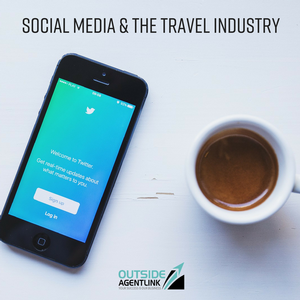In the past years, social media has become much more than funny videos and status updates. It is now a major platform that affects how individuals and businesses go about every day. The travel industry is not immune to the effects of social media, either. From changing expectations of service to increased demand for exotic destinations, here are four ways that social media has influenced the travel industry:
Customer Service
Nowadays, when a customer has a question, complaint or concern with a business, they often turn to social media first to get a quick answer. From tweeting at your airline when your flight gets delayed to posting a negative Facebook review of a less-than-perfect hotel stay, social media has revolutionized customer service for the travel industry. Travelers expect their tweets and posts to be seen and acknowledged on the same day, sometimes even within the same hour. Even independent travel agents will have to adjust their customer service to keep their clients happy by being available, even during non-work hours to help in emergencies.
FOMO
FOMO, or fear of missing out, has become a wide-spread side effect of social media. With friends and strangers constantly posting snapshots of the best of their days online, people are always in search of ways to experience those moments for themselves. Vacation posts are full of exotic destinations, stunning beaches, and adrenaline pumping adventures. This is driving travelers to book more unique, niche trips not only for the chance to get away but also to share (and even brag about) online.
Transparency
Social media has put a lot of pressure on companies to be more transparent with their customers, and the travel industry is no exception. When every aspect of a trip can be posted online in a matter of seconds, airlines, hotel chains, and other travel players are no longer able to hide shady policies or poor service from the masses. This can be seen in the rising popularity of sustainable tourism to the PR nightmares that have plagued United Airlines in recent years. While consumers have certainly benefited from this increased transparency in the travel market, many areas in the industry still have a long way to go to regain consumer trust.
Awareness
Many small businesses have reaped the benefits of social media’s unique ability to bring awareness at a reasonable cost. Independent travel agents can also make the most of social platforms such as Facebook and Instagram to get their services in front of new audiences and clients. From finding and targeting niche travel audiences online to keeping in touch with current clients throughout their travels, there’s no reason the modern travel agent shouldn’t be on social media.

